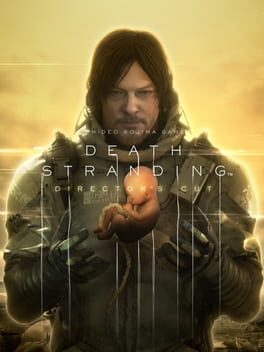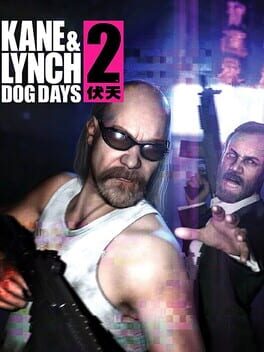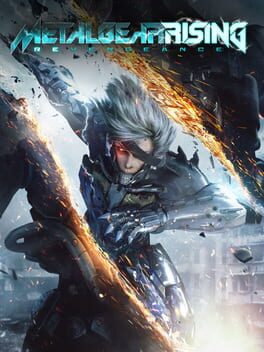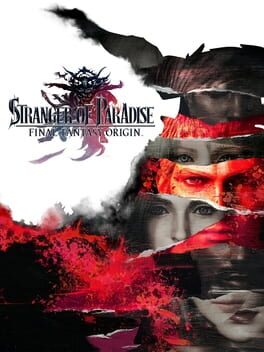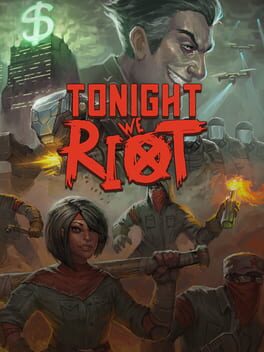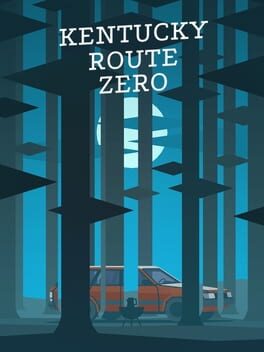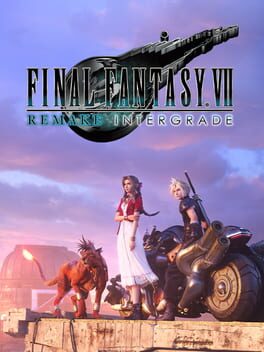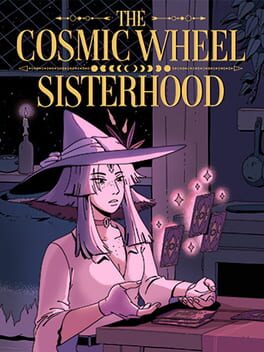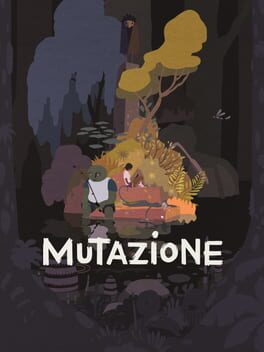joeysobat
Makes sense that most of the communist-chanting options are played almost as jokes, because no one believes those grand statements anymore. More than that, they can't believe. They almost lost their meaning. This town is more complicated than all of that.
The sense of longing and the pain that comes from nostalgia are not enough: the world, the people, society, they have layers and layers. Reality is broken, and the past holds too many traumas for everyone. But you can still peel most of those layers, and get to the bottom of the heart. It doesn't feel like a task or a chore in any moment, it's like the answers are always driving you forward in such a small and concrete environment. You HAVE to keep going!! Be the detective, untangle every mess in your life and roll those dice!!!
The sense of longing and the pain that comes from nostalgia are not enough: the world, the people, society, they have layers and layers. Reality is broken, and the past holds too many traumas for everyone. But you can still peel most of those layers, and get to the bottom of the heart. It doesn't feel like a task or a chore in any moment, it's like the answers are always driving you forward in such a small and concrete environment. You HAVE to keep going!! Be the detective, untangle every mess in your life and roll those dice!!!
2022
Elden Ring gets caught into the trap of the open-world design: bigger always means better.
There is a sense of discovery in the first 20 hours or so, where you slowly uncover the elements that form the world (characters, enemies, levels, systems...). Many of them are well-known by now, as everyone has pointed out, given their iterative nature. But it's in how is iterated that I think lies the magic of those first 20 hours. The caves, dungeons and mines are my favourite part, having to keep your lantern with you at all times, not knowing where those little assholes will come you from. Little passages, some secrets, a nice boss battle at the end and out. A little adventure in the midst of all that grandiosity.
Sadly, those 20 hours of discoveries and secrets comes to an end rather abruptly, when the iterative becomes repetitive. The same locations, the same enemies, the same bosses, the same items, the same strategy, the same vistas. A boring mosaic. All the magic got swept away for the sake of squeezing all those hours that become junk.
There is much more than just small dungeons, of course. The rest is an extension of dark souls 3, not dark souls 1, with very big and intricate castles, and at the end a stupidly giant mega boss awaiting to be slayed and make a fucking super epic moment, which in many cases read as very similar encounters. I would lie if I'd say that i didn't enjoy (very much enjoy) some of those battles, mainly Radahn and Rennala. They offered something more varied and interesting than just battle, and very refreshing.
Dark souls games have been compered to Berserk ad nauseam, pointing at all the homages and references to Miura's biggest work. It is considered that Dark Souls 3, even this one, kept some of the spirit of the manga faithfully. Recently, I was once again listening to Susumu Hirasawa's ost for the anime while re-reading the manga, and when this song started https://www.youtube.com/watch?v=vZa0Yh6e7dw, I realised that we view Berserk through different lenses, because there is no moment in all Elden Ring that even resembles this.
If that wasn't enough, I've also been replaying Dark Souls 1 at the same time, and it's really jarring the comparison. People destroyed Dark Souls 2 for not capturing the essence of the first one, but I now think they only meant the world wasn't fully interconnected, because Elden Ring is nothing like the first one in the worst ways! DS1 gets much better the spirit of Berserk, the melancholy of a dark and twisted world, full of violence but with traces of hope to continue. Some of the characters you meet along the journey are too cynical to keep going, some of them still hold the will to go forward, many will fall into despair, madness and death, but every single one of them are bound to the strength needed to dream a different future. The idea that the world is not going to die this time. Some still believe it, some stopped believing a long time ago. You yourself keep persevering in a world that has died so many times that it doesn't make sense anymore. Buildings are not going down, but the concept of architecture itself is fading. Ugliness can be felt in the colors of the walls, in the faraway trees and landmasses. Elden Ring is too concrete and clean to show that ugliness, and is too convoluted with power plays to make character interactions tragic or memorable (also, maybe having much more characters doesn't help). The only exception is the woman's hug in The Round Table, something that could perfectly have been in DS1.
I read someone explaining the game as "imagine the moment in DS3 when you saw Irithyll for the first time. That's Elden Ring all the time", implying that it was something great. For me, it's not. I got saturated of so much "beauty", so much brightness, so much clarity, so many perfect compositions that it didn't strike me anymore. Since you are going to be traversing a world for a long time, they decided to make STUNNING VISTAS all the time, every time. An attempt to naturalistic open-worlds. In Spanish, there is a word that perfectly describes my sensations: relamido.
Yes, the gameplay is obviously good. Its the previous games with more weapons, which translates in fun ways to approach fights. But I find pretty underwhelming that the thing this game has going for is what people criticise constantly: polish. A bigger and uniform forest with polished trees.
Maybe I'm being more harsh with this game than with any other, but seeing the comparisons with previous games and Berserk, and spending maybe 70 hours with no moving or alienating experiences unlike the previous ones, has made me more bitter towards this spouting of thoughts. Beware games, don't make me play for that long.
There is a sense of discovery in the first 20 hours or so, where you slowly uncover the elements that form the world (characters, enemies, levels, systems...). Many of them are well-known by now, as everyone has pointed out, given their iterative nature. But it's in how is iterated that I think lies the magic of those first 20 hours. The caves, dungeons and mines are my favourite part, having to keep your lantern with you at all times, not knowing where those little assholes will come you from. Little passages, some secrets, a nice boss battle at the end and out. A little adventure in the midst of all that grandiosity.
Sadly, those 20 hours of discoveries and secrets comes to an end rather abruptly, when the iterative becomes repetitive. The same locations, the same enemies, the same bosses, the same items, the same strategy, the same vistas. A boring mosaic. All the magic got swept away for the sake of squeezing all those hours that become junk.
There is much more than just small dungeons, of course. The rest is an extension of dark souls 3, not dark souls 1, with very big and intricate castles, and at the end a stupidly giant mega boss awaiting to be slayed and make a fucking super epic moment, which in many cases read as very similar encounters. I would lie if I'd say that i didn't enjoy (very much enjoy) some of those battles, mainly Radahn and Rennala. They offered something more varied and interesting than just battle, and very refreshing.
Dark souls games have been compered to Berserk ad nauseam, pointing at all the homages and references to Miura's biggest work. It is considered that Dark Souls 3, even this one, kept some of the spirit of the manga faithfully. Recently, I was once again listening to Susumu Hirasawa's ost for the anime while re-reading the manga, and when this song started https://www.youtube.com/watch?v=vZa0Yh6e7dw, I realised that we view Berserk through different lenses, because there is no moment in all Elden Ring that even resembles this.
If that wasn't enough, I've also been replaying Dark Souls 1 at the same time, and it's really jarring the comparison. People destroyed Dark Souls 2 for not capturing the essence of the first one, but I now think they only meant the world wasn't fully interconnected, because Elden Ring is nothing like the first one in the worst ways! DS1 gets much better the spirit of Berserk, the melancholy of a dark and twisted world, full of violence but with traces of hope to continue. Some of the characters you meet along the journey are too cynical to keep going, some of them still hold the will to go forward, many will fall into despair, madness and death, but every single one of them are bound to the strength needed to dream a different future. The idea that the world is not going to die this time. Some still believe it, some stopped believing a long time ago. You yourself keep persevering in a world that has died so many times that it doesn't make sense anymore. Buildings are not going down, but the concept of architecture itself is fading. Ugliness can be felt in the colors of the walls, in the faraway trees and landmasses. Elden Ring is too concrete and clean to show that ugliness, and is too convoluted with power plays to make character interactions tragic or memorable (also, maybe having much more characters doesn't help). The only exception is the woman's hug in The Round Table, something that could perfectly have been in DS1.
I read someone explaining the game as "imagine the moment in DS3 when you saw Irithyll for the first time. That's Elden Ring all the time", implying that it was something great. For me, it's not. I got saturated of so much "beauty", so much brightness, so much clarity, so many perfect compositions that it didn't strike me anymore. Since you are going to be traversing a world for a long time, they decided to make STUNNING VISTAS all the time, every time. An attempt to naturalistic open-worlds. In Spanish, there is a word that perfectly describes my sensations: relamido.
Yes, the gameplay is obviously good. Its the previous games with more weapons, which translates in fun ways to approach fights. But I find pretty underwhelming that the thing this game has going for is what people criticise constantly: polish. A bigger and uniform forest with polished trees.
Maybe I'm being more harsh with this game than with any other, but seeing the comparisons with previous games and Berserk, and spending maybe 70 hours with no moving or alienating experiences unlike the previous ones, has made me more bitter towards this spouting of thoughts. Beware games, don't make me play for that long.
Few people in this industry (or any industry, mind you), are so commited to constructing so complicated narrative paths and rythms, in order to tell the most naive and sincere emotions about human connection.
Won't ever understand those who insist on labelling Kojima as a frustrated filmmaker who turned to videogames and doesn't care about the gameplay. He has proven himself time and time again on both fronts, and Death Stranding's gameplay is inseparable to his aspirations with the game as a whole. Incisive, complex and reaching for new grounds.
The final credits come to an end, with the names of the other porters that have aided you on your journey. There's so much stuff you've built together without realizing.
Won't ever understand those who insist on labelling Kojima as a frustrated filmmaker who turned to videogames and doesn't care about the gameplay. He has proven himself time and time again on both fronts, and Death Stranding's gameplay is inseparable to his aspirations with the game as a whole. Incisive, complex and reaching for new grounds.
The final credits come to an end, with the names of the other porters that have aided you on your journey. There's so much stuff you've built together without realizing.
This review contains spoilers
Better than the maidenless game.
The gameplay connects instantly, when the jobs are all new and the possibilities many. There really is enough customisation, with the different weapons and jobs, for even side missions to not feel boring, even if the menus and loots can be tedious.
The story is another beast entirely. A re-imagination of the very first game, where the only twist it had was a time-warp of the very first boss, to overpower himself and become the very last. And this is an over-complicated journey of that character, Jack Garland, and his later-to-become boss-minions.
By going the extra mile with the time-warping stuff, the dimensional-rifting and the world-resetting shenanigans, I was having a hard time grasping 60% of what was going on. But when fighting Astos, the pieces start connecting and the emotional weight kicks in. After that, the resolve of the characters is set in stone, the not-warriors of light. Everything felt off from the beginning, because this is a different story. The story of memories, of dark crystals, of Chaos and the end of the world, of invoking the greatest darkness in order to wait up the real finale: the blinding shininess of the four warriors of light.
They are the warriors who have fought so hard to preserve a prophecy they cannot be part of. Or at least, not as how they imagined. In the end, they were part of the world's salvation, but they did it their way.
The gameplay connects instantly, when the jobs are all new and the possibilities many. There really is enough customisation, with the different weapons and jobs, for even side missions to not feel boring, even if the menus and loots can be tedious.
The story is another beast entirely. A re-imagination of the very first game, where the only twist it had was a time-warp of the very first boss, to overpower himself and become the very last. And this is an over-complicated journey of that character, Jack Garland, and his later-to-become boss-minions.
By going the extra mile with the time-warping stuff, the dimensional-rifting and the world-resetting shenanigans, I was having a hard time grasping 60% of what was going on. But when fighting Astos, the pieces start connecting and the emotional weight kicks in. After that, the resolve of the characters is set in stone, the not-warriors of light. Everything felt off from the beginning, because this is a different story. The story of memories, of dark crystals, of Chaos and the end of the world, of invoking the greatest darkness in order to wait up the real finale: the blinding shininess of the four warriors of light.
They are the warriors who have fought so hard to preserve a prophecy they cannot be part of. Or at least, not as how they imagined. In the end, they were part of the world's salvation, but they did it their way.
2017
Dismembering bodies, dismembering reality.
What i liked most from the first Nier was Taro's ability to play with what constitutes a being, and how bodies are transformed several times taking different forms. He has the ability to twist his stories and his characters, so that the confusion that arises from all the endings and new perspectives is not only to show the futility of conflict, but that the real conflict is upon our own bodies.
Nier Automata takes it even further. The only bodies that remain in the world are machine lifeforms. They can be replaced with spareparts, the androids are different from alien machines, but machines can fuse and give birth to androids, and androids are formed with machines' nucleus, and then everyone fights each other, while searching for a human soul.
They build community, they are greedy, they need connection, they need love, they need solitude. They feel. And their bodies keep twisting and turning and breaking and reconstructing and deconstructing and nothing remains the same anymore, because our bodies are in constant death and rebirth as time passes, and we meet new people and they change us and we change them in return. Such is the pain and grace of living.
What i liked most from the first Nier was Taro's ability to play with what constitutes a being, and how bodies are transformed several times taking different forms. He has the ability to twist his stories and his characters, so that the confusion that arises from all the endings and new perspectives is not only to show the futility of conflict, but that the real conflict is upon our own bodies.
Nier Automata takes it even further. The only bodies that remain in the world are machine lifeforms. They can be replaced with spareparts, the androids are different from alien machines, but machines can fuse and give birth to androids, and androids are formed with machines' nucleus, and then everyone fights each other, while searching for a human soul.
They build community, they are greedy, they need connection, they need love, they need solitude. They feel. And their bodies keep twisting and turning and breaking and reconstructing and deconstructing and nothing remains the same anymore, because our bodies are in constant death and rebirth as time passes, and we meet new people and they change us and we change them in return. Such is the pain and grace of living.
2020
2019
The final frontier
Many people wish they could forget the game to enjoy it once again, but I don't believe the game's appeal dissapears after just one time. The travelers will still be there.
I was this close of dropping it in more than one occasion, due to some obtuse as hell puzzles and conditions. I'm glad I didn't, because now my future second playthrough will be more manageable, more focused on the stuff that hit me: the connection, through music or tangled languages in walls.
The physics are omnipresent, space is insurmountable and worlds hold strange secrets. Whenever you may be lost, you can always tune to any planet and listen to someone. You'll talk to them, listen to a banjo 10k miles away from you, and you'll know you're not alone.
Many people wish they could forget the game to enjoy it once again, but I don't believe the game's appeal dissapears after just one time. The travelers will still be there.
I was this close of dropping it in more than one occasion, due to some obtuse as hell puzzles and conditions. I'm glad I didn't, because now my future second playthrough will be more manageable, more focused on the stuff that hit me: the connection, through music or tangled languages in walls.
The physics are omnipresent, space is insurmountable and worlds hold strange secrets. Whenever you may be lost, you can always tune to any planet and listen to someone. You'll talk to them, listen to a banjo 10k miles away from you, and you'll know you're not alone.
2009
Playing this the very last, it's inevitable to see how it has been picked apart by every Souls after this. Dark Souls 1 took the important stuff, Dark Souls 3 the cosmetics.
Breaking up the game into levels like this may not feel as "organic" to lot of people who prefered a long, unique world (maybe the same people who's favourite thing about movies is when a long one-take happens, for the sake of it). I think they can be equally gimmicky if taken out the context. DS1's world's interconnection served to demonstrate how much the fabric of reality had been torn apart after generations of nothing or no one holding it together. In Demon's Souls, the world is at this very moment being threaten by the destruction of reality in the hands of the invisible fog, and so what little remains of the world can be preserved in levels, the only way to go from one place to another without being trapped by the fog. Even then, the fog can still affect this places (hence having to "traverse the fog", a classical element of the franchise that took meaning in here).
This breaking up into levels gives it much more freedom, as you can do them in the order you prefer. Also, the levels are much more enjoyable than in any other Souls game, they have more ups and downs, there are wider landmasses or narrower pathways, the architecture feels more expansive and broken. DS1 may have Blight Town's poisonous deeps, which are a pain in the ass, but Demon's Souls has a poisonous landmass where, if you keep still, dozens of creatures will try to surround you, creating a sense of "lone person in a stranded tiny island, having to deal with the ocean's menace". It is the most varied, without having to resort to hundred shortcuts and a thousand closed doors that read "ok, will be unlocked later".
The bosses are also much more interesting, they don't rely so much in having to learn patterns, but in having to read the room (literally!). I think there's no boss fight that doesn't force you to internalize the area you're placed in, sometimes turning that into an advantage. It's so different from the countless boss fights encountered in a round colosseum-style area.
Even then, my favourite will still be DS1, Demon's Souls as a closed second, due to how many similarities they share.This corrupted land may have lost the punch it had when it came out, after so many iterations on the same concepts, but it's wild to see the very first primordial being as also the most creative one. After DS1, it appears the rest haven't learned much.
Breaking up the game into levels like this may not feel as "organic" to lot of people who prefered a long, unique world (maybe the same people who's favourite thing about movies is when a long one-take happens, for the sake of it). I think they can be equally gimmicky if taken out the context. DS1's world's interconnection served to demonstrate how much the fabric of reality had been torn apart after generations of nothing or no one holding it together. In Demon's Souls, the world is at this very moment being threaten by the destruction of reality in the hands of the invisible fog, and so what little remains of the world can be preserved in levels, the only way to go from one place to another without being trapped by the fog. Even then, the fog can still affect this places (hence having to "traverse the fog", a classical element of the franchise that took meaning in here).
This breaking up into levels gives it much more freedom, as you can do them in the order you prefer. Also, the levels are much more enjoyable than in any other Souls game, they have more ups and downs, there are wider landmasses or narrower pathways, the architecture feels more expansive and broken. DS1 may have Blight Town's poisonous deeps, which are a pain in the ass, but Demon's Souls has a poisonous landmass where, if you keep still, dozens of creatures will try to surround you, creating a sense of "lone person in a stranded tiny island, having to deal with the ocean's menace". It is the most varied, without having to resort to hundred shortcuts and a thousand closed doors that read "ok, will be unlocked later".
The bosses are also much more interesting, they don't rely so much in having to learn patterns, but in having to read the room (literally!). I think there's no boss fight that doesn't force you to internalize the area you're placed in, sometimes turning that into an advantage. It's so different from the countless boss fights encountered in a round colosseum-style area.
Even then, my favourite will still be DS1, Demon's Souls as a closed second, due to how many similarities they share.This corrupted land may have lost the punch it had when it came out, after so many iterations on the same concepts, but it's wild to see the very first primordial being as also the most creative one. After DS1, it appears the rest haven't learned much.
2011
Not a mad world, THE mad world. A nonsensical cumulus of places, still clinging after so many iterations of preserving a feeling, an element, an ember.
Replaying it after almost 8 years has been amazing. I remembered even the enemy placement, but almost forgot the sensations of the places themselves. There's been a lot of complaints about Blight Town, but i love how horrific it looks, how sick the enemies look, the platforms and the wood don't make any physical sense, you are able to pass through out of pure luck! It was one of the instances where I stopped and felt a sinking feeling in my stomach, thinking how many ages you would need to backtrack in time for any of this to make sense, any logical sense based on our world.
Also, I don't understand people saying this is TOO SLOW of a game. "I've played Dark Souls 3 and now I can't get back to 1". Like bitch, just go for endurance and dexterity, you can dodge anything and move gracefully, you can even get strong armour and tank many bosses while still moving a lot; that's how I killed the DLC bosses and Gwyn on first try.
More thoughts in my Elden Ring review.
Replaying it after almost 8 years has been amazing. I remembered even the enemy placement, but almost forgot the sensations of the places themselves. There's been a lot of complaints about Blight Town, but i love how horrific it looks, how sick the enemies look, the platforms and the wood don't make any physical sense, you are able to pass through out of pure luck! It was one of the instances where I stopped and felt a sinking feeling in my stomach, thinking how many ages you would need to backtrack in time for any of this to make sense, any logical sense based on our world.
Also, I don't understand people saying this is TOO SLOW of a game. "I've played Dark Souls 3 and now I can't get back to 1". Like bitch, just go for endurance and dexterity, you can dodge anything and move gracefully, you can even get strong armour and tank many bosses while still moving a lot; that's how I killed the DLC bosses and Gwyn on first try.
More thoughts in my Elden Ring review.
2013
The Lord of the Rings Americana.
Immensely deep and melancholic. Wondering souls traversing places once lived in. Stories that left their mark on the ground, but no one goes around those parts anymore. The muddy soil will finish the task.
The soothing country songs and the sounds and melodies that nature bring make that much more heartbreaking to watch the ghosts' memories. The inescapable and dull force of destiny, dragging some people to cast their humanity aside.
But people, new people, will thrive. And if bigger repressive powers won't let them, they will live. And if they won't let them, they will survive. Or maybe they will go somewhere else. Along with horses from faraway lands.
Immensely deep and melancholic. Wondering souls traversing places once lived in. Stories that left their mark on the ground, but no one goes around those parts anymore. The muddy soil will finish the task.
The soothing country songs and the sounds and melodies that nature bring make that much more heartbreaking to watch the ghosts' memories. The inescapable and dull force of destiny, dragging some people to cast their humanity aside.
But people, new people, will thrive. And if bigger repressive powers won't let them, they will live. And if they won't let them, they will survive. Or maybe they will go somewhere else. Along with horses from faraway lands.
Expanding every corner of Midgard. Maybe they expanded too much?
Making a whole game out of the first section of the original gives room to many possibilities. It allows for building places, for focusing on the people, for caring for the little stories and for putting emphasis on life itself: you are not the center of the story in an abstract environment anymore, you are AT the center of everything, making changes to the environment and to the story simultaneously. Both are one in the same.
The moment it strays from that, it shows how convoluted the whole thing can be. Entire chapters dedicated to giant mechanical bodies of architecture, whose main purpose in the original was to be little transitional levels with a few puzzles and encounters. Expanding them only serves to prove how innecessary was to expand them in the first place.
The soundtrack is remade by master craftspeople, there are musical numbers full of dance, light and music, the details are in the thousands, an insane amount of particles are present in every fight. Excess is everywhere. Probably the thing that may scare people the most, but it's one of the things that I enjoy the most of Nomura and his team. If you're gonna remake something this big, go with everything and don't look back.
But, what are they remaking? Will this be the same story? Has the story been told already, and we're seeing the future? The things that are yet to be? Knowing Nomura, I knew he wasn't gonna do a straight forward game, the context won't allow it. This first part in the trilogy is already messing with time and space, converging moments from AN end from A story, forging destiny as we speak. I have no idea what kind of destiny he wants, but i'm definitely eager to find out.
What a strange piece of media
Making a whole game out of the first section of the original gives room to many possibilities. It allows for building places, for focusing on the people, for caring for the little stories and for putting emphasis on life itself: you are not the center of the story in an abstract environment anymore, you are AT the center of everything, making changes to the environment and to the story simultaneously. Both are one in the same.
The moment it strays from that, it shows how convoluted the whole thing can be. Entire chapters dedicated to giant mechanical bodies of architecture, whose main purpose in the original was to be little transitional levels with a few puzzles and encounters. Expanding them only serves to prove how innecessary was to expand them in the first place.
The soundtrack is remade by master craftspeople, there are musical numbers full of dance, light and music, the details are in the thousands, an insane amount of particles are present in every fight. Excess is everywhere. Probably the thing that may scare people the most, but it's one of the things that I enjoy the most of Nomura and his team. If you're gonna remake something this big, go with everything and don't look back.
But, what are they remaking? Will this be the same story? Has the story been told already, and we're seeing the future? The things that are yet to be? Knowing Nomura, I knew he wasn't gonna do a straight forward game, the context won't allow it. This first part in the trilogy is already messing with time and space, converging moments from AN end from A story, forging destiny as we speak. I have no idea what kind of destiny he wants, but i'm definitely eager to find out.
What a strange piece of media
This review contains spoilers
There is some weird gender essentialism running through all the work... A problematic notion of "only girls (and non-binary people) allowed", in a game of transient stages of the self. A game which shows the multiplicities of matter and skin and bones and time and love, and yet all the realities are yet permeated by the human-construct of gender.
Even then, I was captivated. This is the best deconstructeam has put out, specially in music and execution. They always have interesting concepts, but budgetary constraints hinder their ambitions. Cosmic Wheel Sisterhood is an outstanding work of occultism, of never revealing but always going outside the frames of the screen with their prose. The little stories you read, the voyages of the witches, the many immortal lives, they break the knowledge of what's possible, physically, socially and politically
All the immortal beings gather their cosmical experiences around a cup of tea, then they get high as a cow and have amazing sex. Then you go tell your friends who you love so much about the sex, they cheer you and support you, and you support them in their new projects. Time passes and sadness persist, all the knowledge in the universe doesn't add to much if you cannot share it with your loved ones. One day, all that will remain will be memories of many lives
Sorrow looking at the moon
Even then, I was captivated. This is the best deconstructeam has put out, specially in music and execution. They always have interesting concepts, but budgetary constraints hinder their ambitions. Cosmic Wheel Sisterhood is an outstanding work of occultism, of never revealing but always going outside the frames of the screen with their prose. The little stories you read, the voyages of the witches, the many immortal lives, they break the knowledge of what's possible, physically, socially and politically
All the immortal beings gather their cosmical experiences around a cup of tea, then they get high as a cow and have amazing sex. Then you go tell your friends who you love so much about the sex, they cheer you and support you, and you support them in their new projects. Time passes and sadness persist, all the knowledge in the universe doesn't add to much if you cannot share it with your loved ones. One day, all that will remain will be memories of many lives
Sorrow looking at the moon
2019


